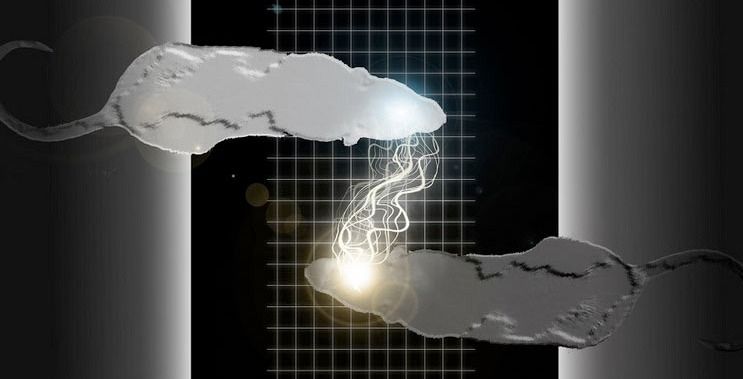Archive for the ‘bionic’ category
Sep 2, 2019
Tilly Lockey, the “Real Alita” / Bionic Girl on ideaXme
Posted by Ira S. Pastor in categories: aging, bioengineering, bionic, biotech/medical, business, electronics, engineering, exoskeleton, health, transhumanism

May 7, 2019
Ekaterina Bereziy, CEO of ExoAtlet, a Russian company developing medical exoskeletons to enable people walk again — IdeaXme — Ira Pastor
Posted by Ira S. Pastor in categories: aging, automation, bioengineering, bionic, biotech/medical, business, cyborgs, disruptive technology, robotics/AI, science

Mar 16, 2018
Bionic Kidney To Replace Dialysis
Posted by Philip Raymond in categories: aging, bioengineering, bionic, biotech/medical
It’s not uncommon for the press to get hyped up before the long process of refinement and FDA approval. Let’s hope that this one moves along quickly — while demonstrating safety and efficacy.
https://www.troab.com/worlds-first-bionic-kidney-set-replace…-two-years
Aug 24, 2017
Futurist Gray Scott: We are Part of a Technological Cosmos
Posted by Johnny Boston in categories: biological, bionic, electronics, evolution, futurism, human trajectories, innovation, media & arts, philosophy, robotics/AI

How will our relationship to technology evolve in the future? Will we regard it as something apart from ourselves, part of ourselves, or as a new area of evolution? In this new video from the Galactic Public Archives, Futurist Gray Scott explains that we are a part of a technological cosmos. Do you agree with Scott that technology is built into the universe, waiting to be discovered?
Follow us on social media:
Twitter / Facebook / Instagram
Continue reading “Futurist Gray Scott: We are Part of a Technological Cosmos” »
Tags: cosmos, future, futurist, futuristic, Geometry, GPA, gray scott, math, philosopher, philosophy, science, tech, technological, technology, transhumanism, video, writer, writing
Jul 14, 2017
Click Here for Happiness
Posted by Johnny Boston in categories: biological, bionic, computing, electronics, entertainment, fun, internet, media & arts, mobile phones
Technology can be wonderful. But how do you keep track of yourself when technology allows you to be everywhere at once?
In this film Prof. Yair Amichai-Hamburger (director of the Research Center for Internet Psychology at the Sammy Ofer School of Communications) argues that even though technology allows us to reach out and connect more easily than ever before, if we don’t ever take a step back, we can lose track of our humanity in the process.
Tags: flow, GPA, happiness, internet, loneliness, media, Messaging, philosophy, phones, professor, social media, technology, texting, video, yair amichai-hamburger
Feb 18, 2017
Artificial Vision, Artificial Retina, Optogenetics, José Alain Sahel MD, CMU RI Seminar
Posted by Frank Sudia in categories: aging, bioengineering, bionic, biotech/medical, computing, life extension, neuroscience, robotics/AI

In the future, if you’re going blind, these sight restoration technologies may be used to remediate your vision loss.
Three major ideas are covered. 1) Implanting arrays of tiny 3-color LEDs under a failed retina to stimulate still-okay cells, and 2) using gene therapy to express a novel photoreceptor, borrowed from algae, to restore a form of sight to failed cells. These can be done together. Lots of studies in mice, primates, and humans. Some coverage is also given to 3) directly implanting electronics in the brain to send complete images to vision centers, but this is still at an early stage.
Aug 24, 2016
Steve Fuller’s Review of Homo Deus: A Brief History of Tomorrow by Yuval Noah Harari
Posted by Steve Fuller in categories: big data, bioengineering, biological, bionic, cyborgs, disruptive technology, energy, evolution, existential risks, futurism, homo sapiens, innovation, moore's law, neuroscience, philosophy, policy, posthumanism, robotics/AI, science, singularity, theory, transhumanism
My sociology of knowledge students read Yuval Harari’s bestselling first book, Sapiens, to think about the right frame of reference for understanding the overall trajectory of the human condition. Homo Deus follows the example of Sapiens, using contemporary events to launch into what nowadays is called ‘big history’ but has been also called ‘deep history’ and ‘long history’. Whatever you call it, the orientation sees the human condition as subject to multiple overlapping rhythms of change which generate the sorts of ‘events’ that are the stuff of history lessons. But Harari’s history is nothing like the version you half remember from school.
In school historical events were explained in terms more or less recognizable to the agents involved. In contrast, Harari reaches for accounts that scientifically update the idea of ‘perennial philosophy’. Aldous Huxley popularized this phrase in his quest to seek common patterns of thought in the great world religions which could be leveraged as a global ethic in the aftermath of the Second World War. Harari similarly leverages bits of genetics, ecology, neuroscience and cognitive science to advance a broadly evolutionary narrative. But unlike Darwin’s version, Harari’s points towards the incipient apotheosis of our species; hence, the book’s title.
This invariably means that events are treated as symptoms if not omens of the shape of things to come. Harari’s central thesis is that whereas in the past we cowered in the face of impersonal natural forces beyond our control, nowadays our biggest enemy is the one that faces us in the mirror, which may or may not be able within our control. Thus, the sort of deity into which we are evolving is one whose superhuman powers may well result in self-destruction. Harari’s attitude towards this prospect is one of slightly awestruck bemusement.
Here Harari equivocates where his predecessors dared to distinguish. Writing with the bracing clarity afforded by the Existentialist horizons of the Cold War, cybernetics founder Norbert Wiener declared that humanity’s survival depends on knowing whether what we don’t know is actually trying to hurt us. If so, then any apparent advance in knowledge will always be illusory. As for Harari, he does not seem to see humanity in some never-ending diabolical chess match against an implacable foe, as in The Seventh Seal. Instead he takes refuge in the so-called law of unintended consequences. So while the shape of our ignorance does indeed shift as our knowledge advances, it does so in ways that keep Harari at a comfortable distance from passing judgement on our long term prognosis.
Aug 4, 2015
A (Very) Brief History of Death
Posted by Johnny Boston in categories: bionic, biotech/medical, cryonics, cyborgs, education, evolution, futurism, health, information science, life extension, science, transhumanism
“I am prepared to meet my Maker. Whether my Maker is prepared for the great ordeal of meeting me is another matter.” — Winston Churchill
Death still enjoys a steady paycheck, but being the Grim Reaper isn’t the cushy job that it used to be.
Jul 13, 2015
Interconnected Rat Brains Create Organic Computer
Posted by Philip Raymond in categories: bioengineering, bionic, biotech/medical, computing, neuroscience
Scientists have been experimenting with brain-to-brain interfaces for years. Miguel Nicolelis, a neurobiologist at Duke University Medical Center, has created a “Brainet” or a network of interconnected brains with four rats. With electrodes implanted directly in the cortex rodents exchange information to create an organic computing device. Collectively, they were able to solve computational problems including image processing, storing and recalling information and even predicting precipitation.
Read the full story by Mona Lalwani at Engadget













